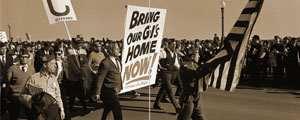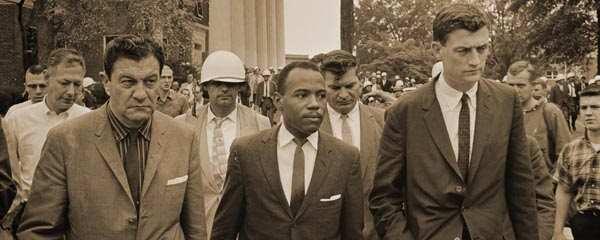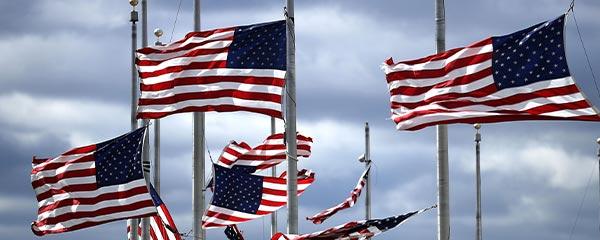A special ║┌┴¤═° poll of college students in November 1969 found significantly more opposition to President Richard Nixon's Vietnam policies among this population than was found in a parallel survey of the U.S. general public: 44% vs. 25%, respectively.
| Approve | Disapprove | No opinion | ||||||||||||||||||||||||||||||||||||||||||||||||||||||||||||||||||||||||||||||||||||||||||||||||||
|---|---|---|---|---|---|---|---|---|---|---|---|---|---|---|---|---|---|---|---|---|---|---|---|---|---|---|---|---|---|---|---|---|---|---|---|---|---|---|---|---|---|---|---|---|---|---|---|---|---|---|---|---|---|---|---|---|---|---|---|---|---|---|---|---|---|---|---|---|---|---|---|---|---|---|---|---|---|---|---|---|---|---|---|---|---|---|---|---|---|---|---|---|---|---|---|---|---|---|---|---|
| % | % | % | ||||||||||||||||||||||||||||||||||||||||||||||||||||||||||||||||||||||||||||||||||||||||||||||||||
| U.S. adults | 64 | 25 | 11 | |||||||||||||||||||||||||||||||||||||||||||||||||||||||||||||||||||||||||||||||||||||||||||||||||
| U.S. college students | 50 | 44 | 6 | |||||||||||||||||||||||||||||||||||||||||||||||||||||||||||||||||||||||||||||||||||||||||||||||||
| Students by region | ||||||||||||||||||||||||||||||||||||||||||||||||||||||||||||||||||||||||||||||||||||||||||||||||||||
| South | 60 | 34 | 6 | |||||||||||||||||||||||||||||||||||||||||||||||||||||||||||||||||||||||||||||||||||||||||||||||||
| Midwest | 52 | 43 | 5 | |||||||||||||||||||||||||||||||||||||||||||||||||||||||||||||||||||||||||||||||||||||||||||||||||
| West | 50 | 42 | 8 | |||||||||||||||||||||||||||||||||||||||||||||||||||||||||||||||||||||||||||||||||||||||||||||||||
| East | 36 | 58 | 6 | |||||||||||||||||||||||||||||||||||||||||||||||||||||||||||||||||||||||||||||||||||||||||||||||||
| Results for U.S. adults based on Nov. 12-17, 1969, survey; results for U.S. college students based on Nov. 1-16, 1969, survey. | ||||||||||||||||||||||||||||||||||||||||||||||||||||||||||||||||||||||||||||||||||||||||||||||||||||
A particularly strong pocket of student opposition existed among those attending college in the Eastern region of the U.S. There, 58% disapproved of Nixon's Vietnam policies, compared with 43% in the Midwest, 42% in the West and 34% in the South.
The results came from a nationally representative poll of 1,092 full-time college students in the U.S., spanning students from public and private schools. The results for the U.S. general public came from a poll of 1,537 national adults.
All of the national adult interviews and most of the college student interviews were conducted after Nixon's address to the nation on Nov. 3, 1969, in which he appealed to the "great silent majority" to back continuation of the war that he had inherited upon taking office in January. Resisting pressure from anti-Vietnam protestors to pull out of Vietnam altogether, Nixon laid out his case for transitioning responsibility to the South Vietnamese army and ultimately withdrawing so as to provide "peace with honor."
The same survey showed 69% of students in favor of slowing down or halting the fighting in Vietnam, while only 20% favored escalation. This was a sharp change from 1967, when more students favored escalation (49%) than de-escalation (35%).
According to ║┌┴¤═°, "It is clear that many students, for whom the war is an ever-present reality, are caught between a desire to see an immediate end to the killing on both sides and the belief that our withdrawal cannot be abrupt. Some may give tentative approval to the administration's current policy of de-escalation, but nevertheless believe it is the role of students to keep the problem of Vietnam in the forefront of the nation's conscience and to bring pressure on the administration to find ways to end the war as soon as possible."
View the original 1969 ║┌┴¤═° news release on the Vietnam War.
Read more from the ║┌┴¤═° Vault.





